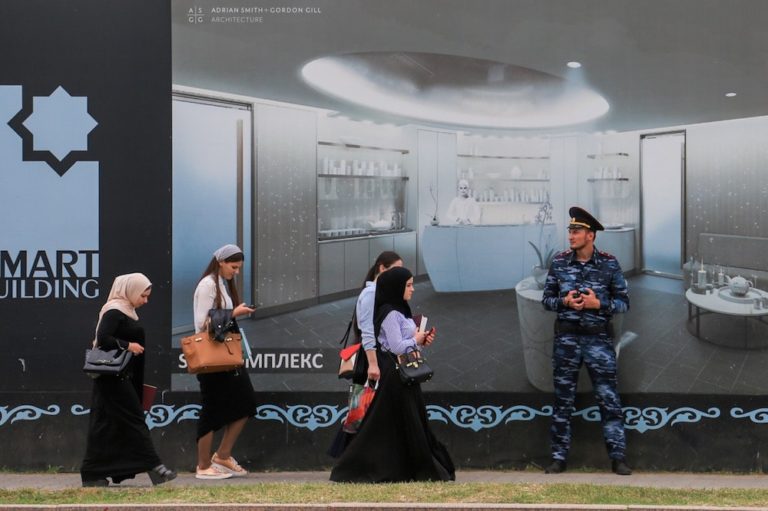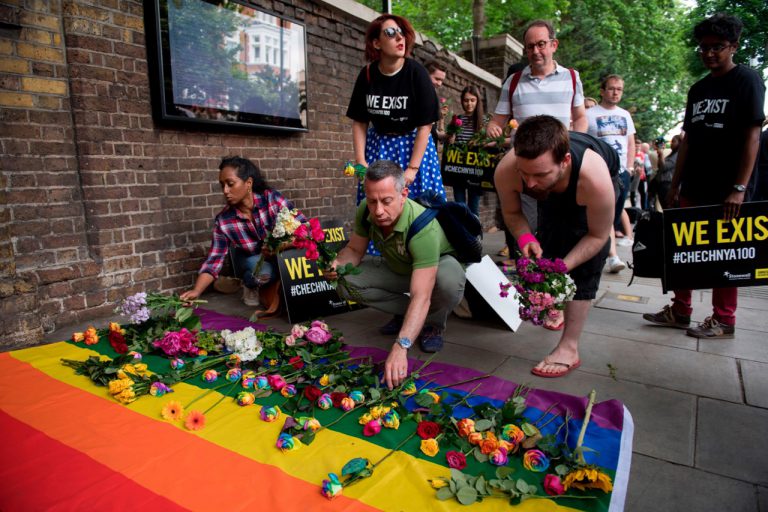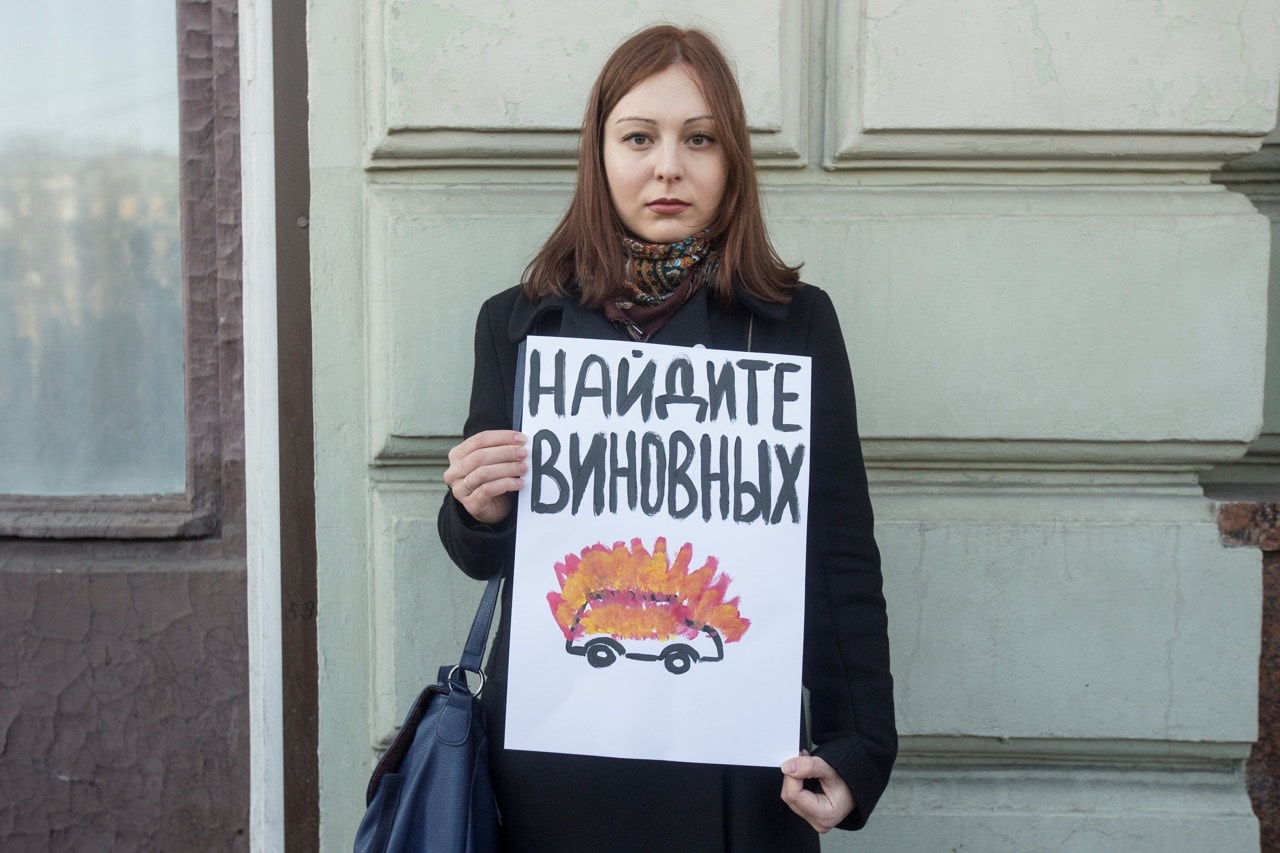(HRW/IFEX) – The following is a Human Rights Watch press release: Russia: Torture Victim Abducted in Chechnya (Moscow, August 6, 2008) – A man who made public his secret detention and torture by Chechen security agents was abducted and “disappeared” in Chechnya on August 3, 2008, Human Rights Watch said today. Human Rights Watch called […]
(HRW/IFEX) – The following is a Human Rights Watch press release:
Russia: Torture Victim Abducted in Chechnya
(Moscow, August 6, 2008) – A man who made public his secret detention and torture by Chechen security agents was abducted and “disappeared” in Chechnya on August 3, 2008, Human Rights Watch said today. Human Rights Watch called on the Chechen authorities to immediately launch a thorough investigation to find the man, 42-year-old Mokhmadsalakh Masaev, and ensure that he is protected from torture and ill-treatment.
According to Masaev’s relatives and the Russian NGO Memorial Human Rights Center, he was abducted by unknown individuals in camouflaged uniforms in the center of Grozny on August 3 at about 4 p.m. The kidnappers forced Masaev into their vehicles and drove off. The incident was witnessed by passers-by and street vendors. Masaev’s family has no information as to his fate or whereabouts. A local police station refused to register a report on the abduction filed by Masaev’s brother Oleg. Moreover, Oleg Masaev’s conversation with the policemen led him to the conclusion that Mokhmadsalakh had been abducted by Chechen law-enforcement agencies acting on informal instructions of the republic’s leadership.
“We are deeply alarmed about Masaev’s abduction and fear his life is in danger,” said Tanya Lokshina, deputy director of Human Rights Watch’s Russia office. “Masaev is one of the few people who dared to speak publicly about how he was tortured in illegal detention by Chechen officials, and we are afraid he’s paying a very high price for his courage.”
Earlier this year, Masaev told Human Rights Watch that in September 2006 he was abducted from a mosque in Gudermes, Chechnya’s second-largest city, and held in an illegal detention facility until January 21, 2008. He reported being beaten on several occasions, accused of being a Wahhabi and a collaborator with insurgents, held in inhumane conditions, and subjected to death threats. Two of his acquaintances were abducted and held with him but freed earlier through the intervention of their well-connected relatives. Masaev said that no charges were filed against him and that in the end he was released by his captors.
Following Masaev’s persistent demands that the authorities investigate his incarceration and ill-treatment, in early 2008 the prosecutor’s office launched a criminal investigation into the kidnapping of Masaev and his two friends (the investigation is now ongoing). On July 10, one of Russia’s key independent print media outlets, Novaya Gazeta, published an interview with Masaev, in which Masaev stated that he “had been held hostage for four months by [Chechen President] Ramzan Kadyrov” in a secret detention facility located in Kadyrov’s native village, Tsenteroi.
“Given that Masaev’s accusation was directed at Chechnya’s leadership, there are grounds to believe that his subsequent ‘disappearance’ is in punishment for his persistence in seeking justice,” said Lokshina.
Masaev’s lawyer, Stanislav Markelov, told Human Rights Watch that the August 3 abduction is “an attempt to thwart this unprecedented criminal case about a secret prison run by the leadership of Chechnya.” He said he feared that they are trying to make Masaev retract his testimony.
Vyacheslav Izmailov, the Novaya Gazeta correspondent who interviewed Masaev in July, told Human Rights Watch: “From the very day Mokhmadsalakh came to our office, I was afraid this would happen. I warned him that he could face grave consequences for being so outspoken and suggested not to run the interview under his real name. He was adamant, however. He wanted his story and his identity known to the world. He hoped that it would save other people in Chechnya from being held and tortured in illegal prisons. He was ready to pay with his very life for telling the truth. Now he’s abducted because the perpetrators want to silence him.”
Human Rights Watch has contacted the Chechen and Russian authorities about Masaev’s disappearance and expects them to take prompt and effective steps to protect Masaev and hold accountable the perpetrators in the crime.
“If President Dimitry Medvedev is truly committed to entrenching the rule of law across Russia, he needs to foster an environment in which victims of human rights abuses can speak up without fear, including in Chechnya,” said Lokshina.
For more of Human Rights Watch’s work on Chechnya, please visit: http://www.hrw.org/doc?t=chechnya


